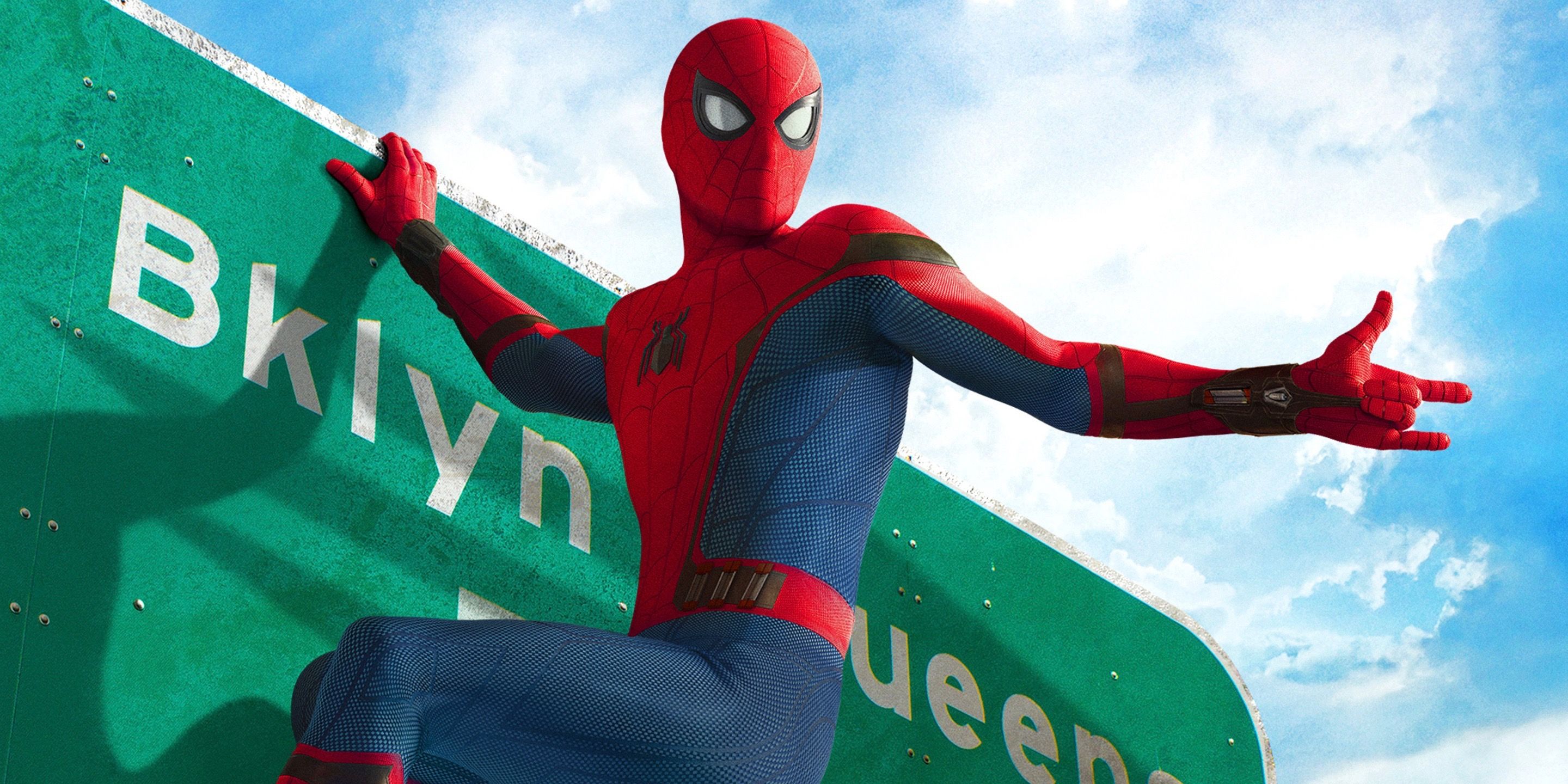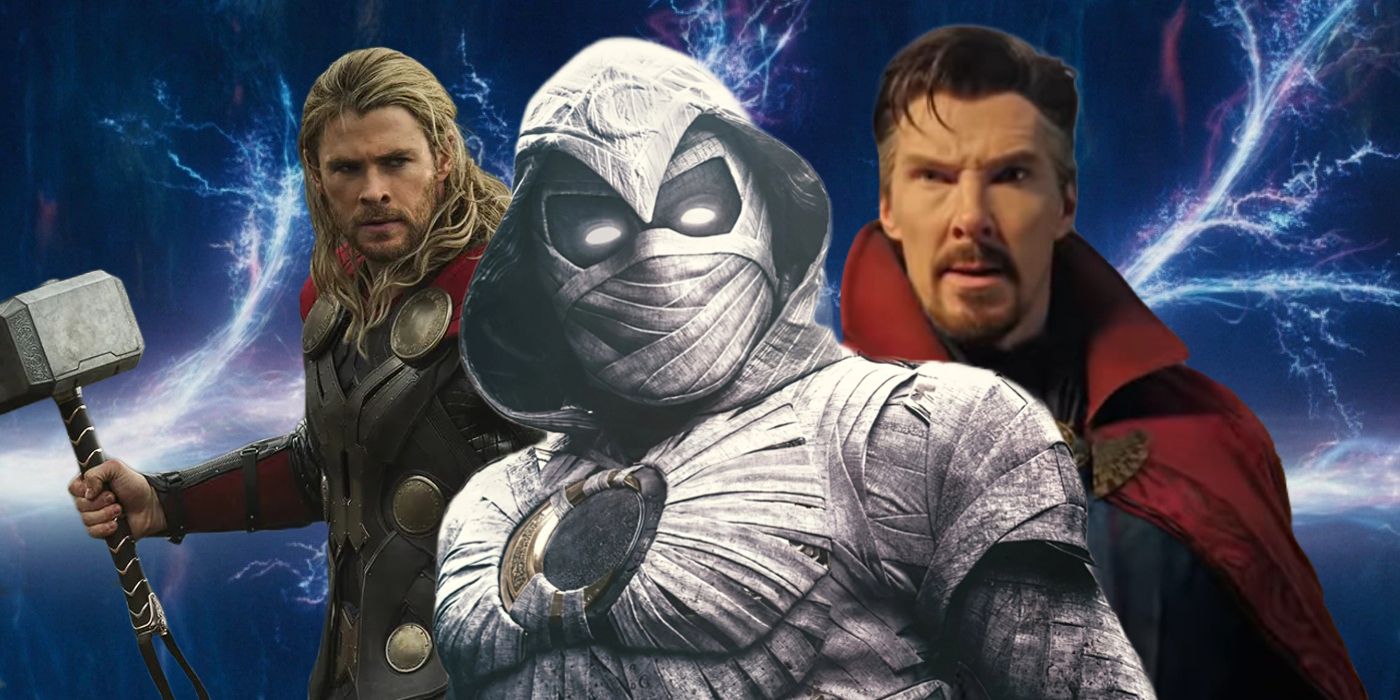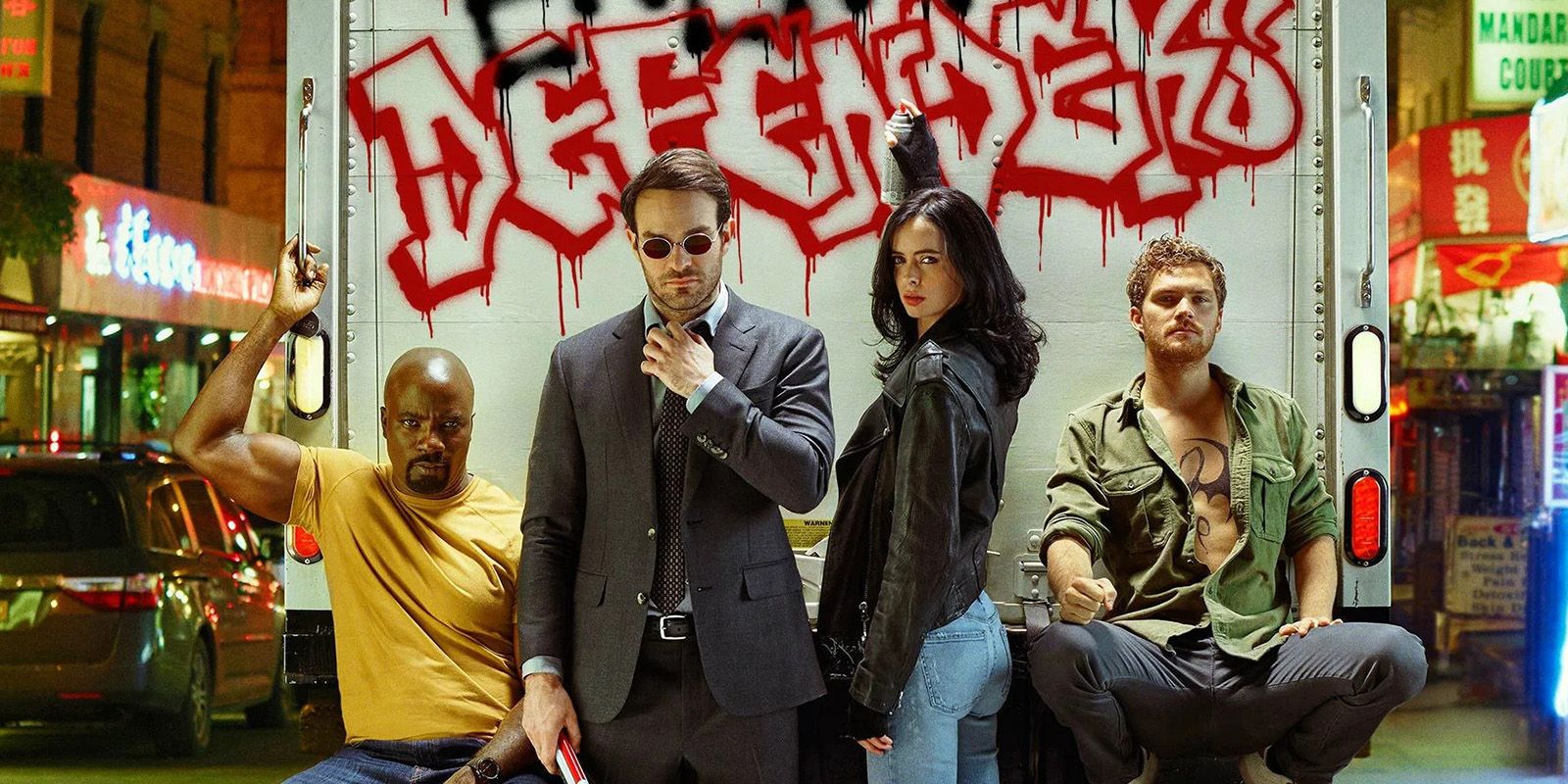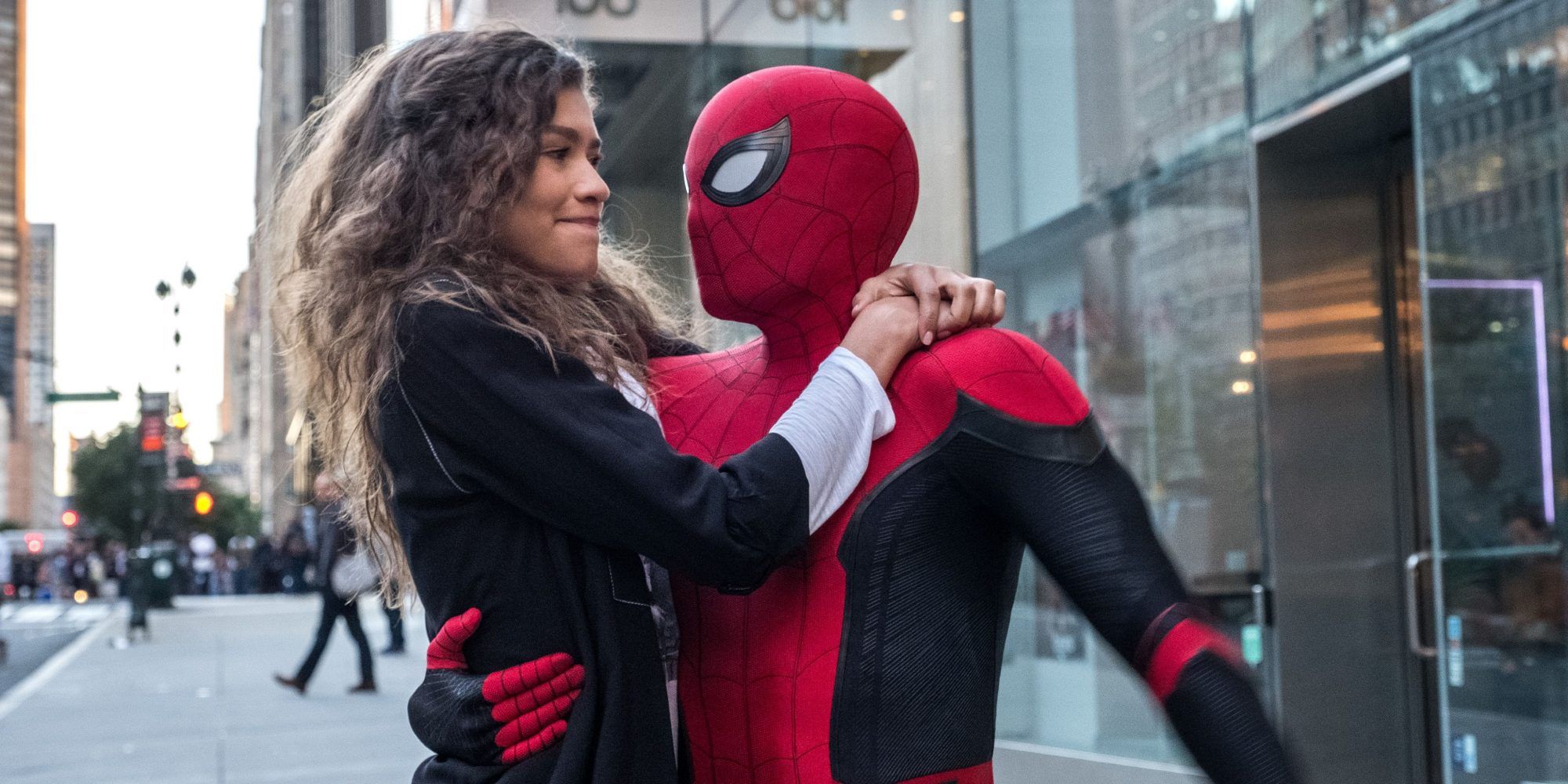Paul Sarker worked as Marvel's Legal Counsel, playing a major role in shaping the Marvel Cinematic Universe. Best known as the co-host of Better Call Paul, a podcast that discusses everything from entertainment law to crypto, Paul Sarker has now been practicing as an attorney for about 11 years. He started his career at Marvel and Disney after interning for a few law firms, and worked for them for almost six years.
It's easy for viewers to forget that legal deals lie at the heart of the MCU, a shared universe that was born using characters Marvel hadn't sold off to other film studios - and that grew as characters returned to the House of Ideas. The Marvel/Sony Spider-Man deal was in itself a major achievement for the lawyers, and at times the maintenance of that deal has proved to be tricky; it almost fell apart completely in 2019 after the release of Spider-Man: Far From Home, and it took the intervention of Tom Holland himself to encourage everyone to return to the negotiating table. That means lawyers and attorneys like Sarker are key to the MCU's success.
Related: Why Thor: Love And Thunder Is The Most Exciting MCU Movie Of 2022
Screen Rant spoke to Sarker about his work with Marvel Studios, the legendary Marvel approach to spoilers and Non-Disclosure Agreements, and the hugely successful Marvel-Sony deal. Naturally, Sarker avoided disclosing anything that would breach client confidentiality or his own NDAs with Marvel, but the insights are nonetheless informative - and will give audiences hope that the Spider-Man deal will continue in the long-term.
Screen Rant: With your background in Marvel, can you give us an idea of the kind of issues you used to deal with as Marvel's legal counsel?
Paul Sarker: It's hard to say where to start, it was a little bit of everything. I started as a third-year intern, one day a week, and at that point I was really functioning more like a paralegal. I was organizing things, marking up simple documents, putting charts together for corporate entities and all their filings. I was also helping organize things. Marvel is a very lean company, and there are so many things actively going on at once. It was important to have someone like me, or someone at a junior level, who'd step in - say, look at ten licensing agreements, here are the restrictions.
The first movie that came out after I started was Iron Man 2, this is just an example. One day someone say, 'Hey, the premiere for Iron Man 2 is in a month, do we know who's contractually entitled to get tickets and where they're supposed to sit, do they get afterparty tickets too?' No-one knew. Someone from marketing put together a chart, no-one knew if that was accurate as far as the contracts required. So I volunteered to look into this, and for the next six years that was my responsibility every time we had a movie premiere. I would have to report, summarize what the contracts said. Then it grew into working with the promotional marketers who had the list of guests, arranging it. So the day of the premiere, I would be getting phone calls and emails and texts from all the promoters; 'So-and-so's having an issue getting in, where do I get my credentials.' So it was actually a very fun legal/nonlegal thing, but that's just an example of the type of stuff.
At Marvel, it was very much that whatever you can handle, they'll give you. And then, if you demonstrate an aptitude and reliability, they'll give you more.
Screen Rant: What was your proudest achievement at Marvel Studios?
Paul Sarker: That is a tough one. There were times when it was incredibly busy, and at the start of 2014, mid-2014, we were working on Avengers: Age of Ultron pre-production, Guardians post, and Marvel's Netflix series at the same time. Each one of those could probably be a full-time job for someone. I wasn't by myself, there was a team, but I took a leadership role as the junior to mid-level person on all three of those. It was incredibly manic, but it was very rewarding. I think the most rewarding thing was probably, although it wasn't my day-to-day responsibility, getting the Marvel Netflix shows off the ground from a legal perspective. I was part of a team, working with the Business Affairs team and the Production Team, but that was a very difficult and time-sensitive process.
We also didn't have a lot of experience of streaming television - I mean, streaming television was very new at that point, there wasn't a lot of institutional knowledge about it. We had five series counting The Defenders, and Netflix was very particular about what they wanted, they were paying top dollars so they got what they wanted. Working within the political landscape of Disney, ABC, Marvel, and Netflix, getting everything done on time while making sure the talent stayed happy and we were within budget, was very challenging.
Screen Rant: Everyone jokes about Marvel's attitude to spoilers. How tough is Marvel in terms of their Non-Disclosure Agreements (NDAs) with the stars?
Paul Sarker: It's incredibly tough, and it's not just the stars. I oversaw a process a year or two into my tenure, where every business unit - licensing, marketing, theatrical, animation, people visiting the office - everyone has to sign an NDA, unless they've already signed one. Every week, every business unit, there was someone in charge of tracking all the NDAs that got signed that week - eventually I think they automated it, made it a digital process. But at the time, they made sure they were signed, and sent them in to me. So I would say, Consumer Products had 15 NDAs this week, and we would file them so we'd know who would have access to confidential material based on the fact they'd signed an NDA.
Marvel has an entire security team that vets contractors, anyone that would be getting access to the company's material. All assets are shared through a secure file transfer network and watermarked, used within the actual environment, so it's incredibly secure.
Screen Rant: Let's focus in on one hot topic often discussed by fans. Marvel's deal with Sony has been a huge success, bringing Spider-Man into the MCU. How difficult do you think it was to negotiate that deal, and what issues are there for keeping it going in the long-term?
Paul Sarker: Well, let me preface this by saying I left Marvel in 2015. The Marvel/Sony relationship was longstanding, it dates back to the late '90s when Marvel licensed the exclusive film rights to Sony to produce Spider-Man films, while Marvel retained rights to comic books, merchandise rights, and TV rights more or less. It's a very complicated relationship, because at the time Marvel wasn't a film studio, and they didn't really have any interest in making movies. I wasn't there.
For the five or six years that I was there, the focus was on merchandise and how to cooperate on the movies. And then, at the end, starting maybe end of 2014, early 2015, Sony had limited success with Amazing Spider-Man 2. They had talented actors, but for whatever reason the pieces just didn't come together. In addition, Sony made that Seth Rogen movie The Interview, which was leaked, and there was this controversy with North Korea. They were in a delicate position as a studio, and at the same time Marvel needed Spider-Man for Avengers: Endgame and Infinity War, and also Civil War.
I don't know how the process started, because I didn't get involved until I needed to be involved, but I assume the creative head Kevin [Feige] and his counterpart Amy Pascal had conversations about sharing Spider-Man, and that led to the genesis of a deal that my boss probably negotiated. Then when it turned into papering it, that's when I got involved, we had to amend the licensing agreements to address the fact that certain characters could be shared, there was revenue sharing. That deal was probably 2015, and then I think August or the spring of 2021, it was renewed and extended to allow Disney and its streaming platform to have the Spider-Man films in their second window. So, there's theatrical window, home rental window, and then there's the first window on Netflix, following that in the longer-term they'll be on Disney+.
Creatively, I think it's a win-win. Sony gets the benefit of Kevin [Feige] and his amazingly talented team in making their movies. Marvel gets to use Spider-Man, who is one of the most prominent characters in the MCU, in its films. I think the fans ultimately win, because seeing Spider-Man in Civil War, in Endgame and Infinity War is super-cool. And also seeing Doctor Strange or Iron Man in Spider-Man films is also very thrilling.
Screen Rant: A lot of the fans do seem to view this as a competition - who gets the most out of it. You view it as win-win?
Paul Sarker: I view it as win-win. I haven't worked at Marvel for the past couple of years, but it makes sense. The importance of Spider-Man to Sony as a movie studio can't be overstated, right? Because Sony doesn't have the box office draws that Marvel has, so the fact Sony was able to retain the rights to make Spider-Man movies and also get Kevin [Feige]'s input and his DNA in the movie is a huge win for them. I think the only other option would've been Disney buying back the rights, and who knows how expensive that would've been, but long-term that wouldn't have been a great move for Sony. This helps Sony keep their studio relevant in the comic movie conversation, and it gives Marvel one of its best characters. So I think it's a win-win. In my own opinion, if Sony didn't do the deal but continued with its productive approach without Marvel's input, I don't think that's a good result for them. At the same time, if Marvel doesn't get to have Spider-Man in its films, that's not great either. Both sides get something important out of this.
Screen Rant: There is a lot of interest in the idea of Amazing Spider-Man 3, with Andrew Garfield coming back after No Way Home. Do you believe that's possible from a legal viewpoint, or do you think there are contractual restrictions involved?
Paul Sarker: Anything's possible from a legal standpoint. That doesn't mean it's possible from a business or creative standpoint, but legally as lawyers we often respond to the direction and requests of business and creative teams. I know Sony has the exclusive rights to Spider-Man. In theory, if Andrew Garfield wanted to be part of this franchise moving forward, in Amazing Spider-Man 3, and there was a budget for it... Legally, the sides could work out whatever paperwork needed to be done to make that happen. But I think, from a creative point of view, Andrew Garfield may not want to do it. I think he's gone on record saying he's gonna take a break from acting, he may not be in the area creatively where he wants to be making Amazing Spider-Man 3. But I think, if all the other factors were pointing that way, legally there'd be a way to get it done.
Screen Rant: Makes perfect sense. Moving to another topic that you've discussed on your podcast - Marvel's traditionally contracted actors for multiple films, presumably now TV shows as well. But Oscar Isaac has only been contracted for one season of Moon Knight. Why do you think Marvel's changed their approach?
Paul Sarker: Right, so - yeah, we talk about this in episode 7 of Better Call Paul. I was surprised to hear Oscar Isaac did a one-season deal, because when I was at Marvel - granted, this was five or six years ago - contracts with actors were significantly longer. They often involved options for theatrical, options for sequels and prequels, cameo options, and other options for franchises, and often for television. Marvel, because of the interconnected nature of its stories and the fact it's producing content in so many different genres and forms of mediums, they need a lot of flexibility. But also they want to have some contractual predictability to be able to say, 'If we need this character to appear in a TV show, and we can't recast every time...' The option structure gives them a lot of flexibility in terms of the price, and certainty knowing there'll be continuity between the actor playing the same part in the film and the TV show - that's what fans appreciate. So, there's clearly benefits to having that from a studio perspective.
That being said, as Kevin [Feige] said last year, they're leaning towards shorter-term deals now because they don't want actors to feel forced to be in movies - and it is a huge commitment. So, we talked about this in the podcast, if you're offering the role to someone who's just starting out in the MCU, they may be a very established actor such as Oscar Isaac or Joaquin Phoenix, and you offer them a deal with ten options that could take up a decade of their life... That's a huge commitment. Marvel movies are big-budget, they're not necessarily year round, but you have to stay in shape, you have to eat right, you have to be in physical condition to make these movies, and that isn't necessarily an easy thing to maintain. I mean, look at Chris Hemsworth, he's been Thor for a decade, and that's been great for his career and he's done other movies in the interim, but it's still a major commitment - although I don't know if he'd have it any other way.
But I think what Kevin [Feige]'s trying to say is, and I haven't spoken to him about this, 'We want to take a more flexible, talent-friendly approach.' At this point, Marvel has established itself as the premiere franchise-generator, so if you want to be a part of that amazing success - great, they'd love to have you, but they don't want anyone to feel coerced. I think, on the front end, it makes it easier to get some deals done. It's a more reasonable, three or four options. And then after four pictures, if everyone's still winning and everyone still wants to work together, great. But that certainly is a change from what it was like while I was there.








